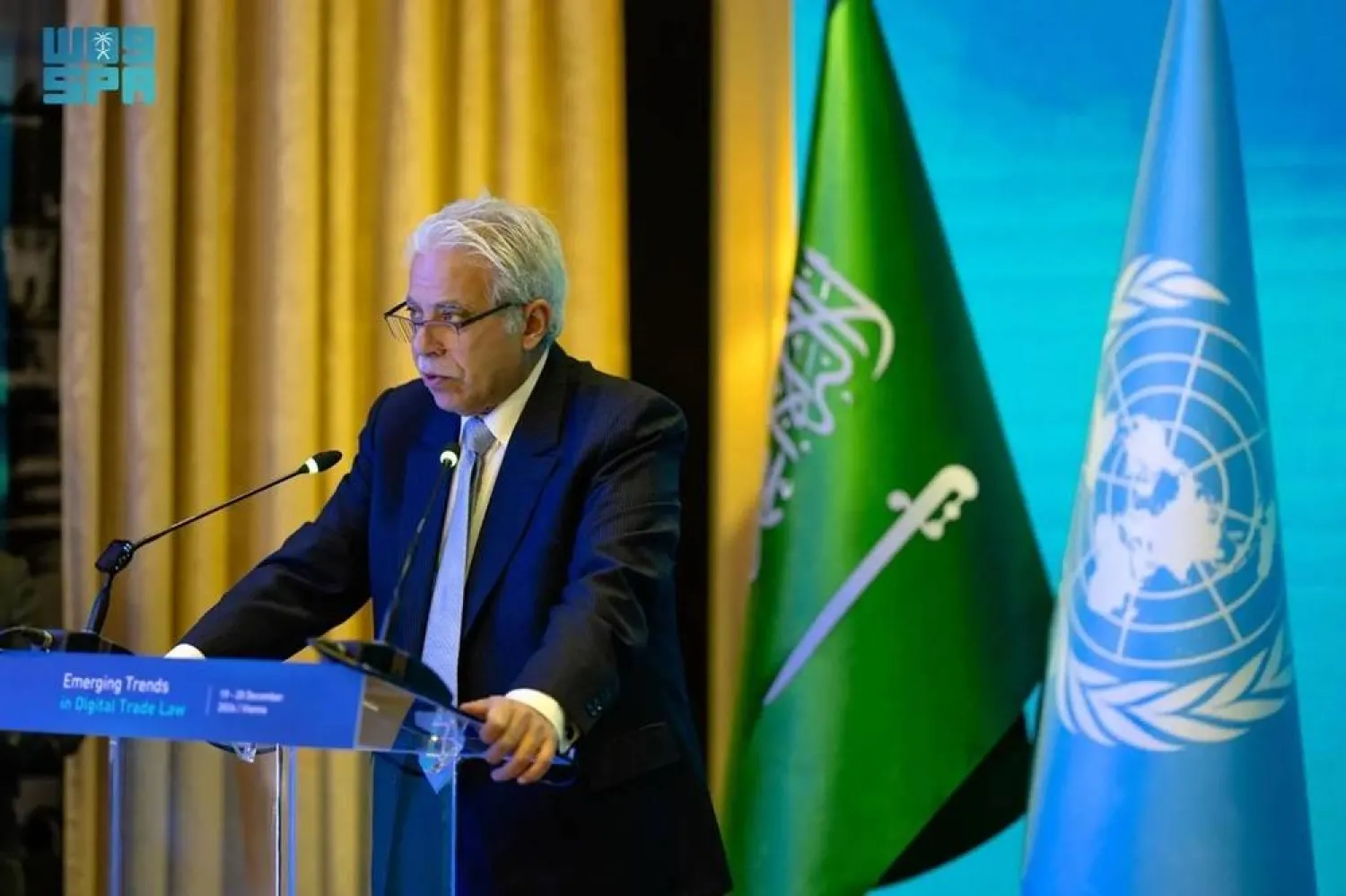Saudi Minister of Commerce and National Competitiveness Center (NCC) Chairman of the Board of Directors Majid Al-Kassabi participated in the high-level workshop, "Emerging Trends in Digital Trade Law," in Vienna.
The event was organized by the NCC in cooperation with the United Nations Commission on International Trade Law (UNCITRAL).
Al-Kassabi headed a delegation of 32 officials representing 20 government entities who participated in the workshop sessions held on Thursday and Friday. The workshop was also attended by Saudi ambassador to Austria Dr. Abdullah bin Khalid Tawlah and UNCITRAL Secretary-General Anna Joubin-Bret.
During the opening session, Al-Kassabi said the growing global adoption of digitization has transformed trade, making it more efficient, reliable, and transparent. He emphasized that leveraging advanced and emerging technologies has reshaped local and international trade as well as consumer behavior, noting that Saudi Arabia is keeping pace with the trend through economic reforms.
Joubin-Bret noted that digital trade plays a pivotal role in shaping the international trade landscape, explaining that UNCITRAL and its partners, including Saudi Arabia, are working to establish international trade laws that support digital trade. She also the need for member states to collaborate on laws that bolster the digital economy.
In the first working session, Global Alliance for Trade Facilitation Deputy Director José Raúl Perale discussed the latest developments in global digital trade law and comprehensive trade digitization.
The participants in the workshop included the Ministries of Commerce, Justice, Finance, Economy and Planning, Industry and Mineral Resources, Energy, Foreign Affairs, and Education; the General Authority for Foreign Trade; the Zakat, Tax, and Customs Authority; the Capital Market Authority; the Small and Medium Enterprises General Authority; the Saudi Authority for Data and Artificial Intelligence; the Bureau of Experts at the Council of Ministers; the Saudi Central Bank (SAMA); the Board of Grievances; the National Competitiveness Center; and the Bankruptcy Commission.









